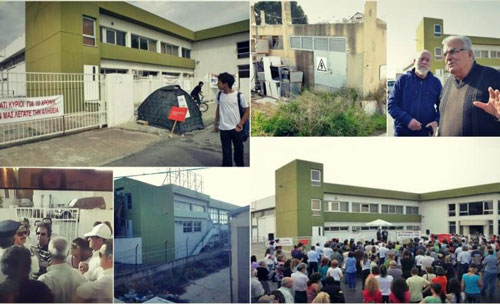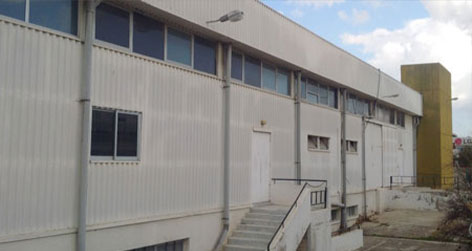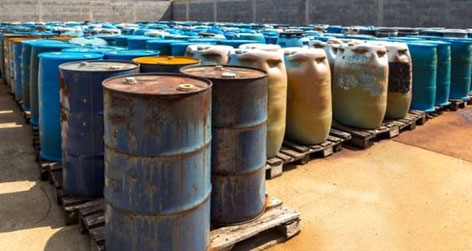Astrasol Case
Brain Cancer Cluster StudyAfter 10 years of impact, our lab team’s work took the form of a court winning case about general population exposures to dichloromethane and brain cancer development in Nicosia, Cyprus' capital. This is the first general population study that linked dichloromethane exposures to brain/CNS cancer incidences via a cancer cluster methodology. It is also the first court case in Cyprus that is won for an environmental pollution and health case. On 29th December 2017, the Cyprus main district court ruled that the shoe sole factory called Astrasol located in Nicosia, Cyprus, operating from the early 80’s until 2009 was inadvertently responsible for creating a cancer cluster for the general population living around the factory.
In its 171 page ruling decision, the court said: «From 1976 to 2009, the chronic dichloromethane gas emissions created a meaningful cancer cluster in the area surrounding the point source of pollution (factory)... The judge relied exclusively on our cancer cluster investigation to reach its final decision on the court case».
Our cancer cluster publication for that case study can be found here

More than 50 individuals filed suits claiming that for over 30 years, the factory systematically emitted the solvent dichloromethane in processing its shoe soles causing a cancer cluster in the residential area around the factory. Dichloromethane is a probable carcinogen according to the IARC classification.
Governmental departments of labour inspection and town planning, including the office of the attorney general of Cyprus were also found guilty for this class-action lawsuit. The court found that the attorney-general bears responsibility for the majority of the plaintiffs as the state’s responsibilities on monitoring pollution and implementing pollution controls were systematically violated.


The labour inspection department failed to carry out any waste gas emission measurements at the factory from July 1999 to June 2004, when Astrasol received its certificate of registration process. «After the factory received its waste gas emissions license, the department failed in its duties again because, despite readings showing very high dichloromethane at the factory exhaust, the authorities did not take any measures to terminate the illegal operations of the factory», the court said. The labour inspection department granted the two licenses to Astrasol despite the factory failing to have the proper planning permit. Also, the court decision mentioned that «the governmental department of town planning, despite knowing that Astrasol had not obtained a planning permit for the mass production of shoe soles, did not take any court measures to put an end to this unlawfulness.»
The above mentioned parties are responsible for any damages incurred by the plaintiffs. The court issued a decree separating all the lawsuits so that the compensation for each plaintiff will be separately decided.

